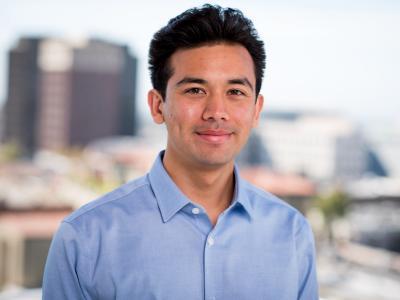

While at HKUST, Sean was involved in three undergraduate research programs: the Undergraduate Research Opportunities Program (UROP); the International Genetically Engineered Machine (iGEM) competition; and the HKUST International Research Opportunities Program (IROP).
In 2012, Sean competed in iGEM, the largest synthetic biology competition in the world, with the HKUST team. The team went on to win a gold medal in the iGEM Asia jamboree and earned a chance to compete in the world final. This experience deepened his interest in applied biological sciences and led him to pursue further bioengineering research opportunities through the UROP, a program which gives undergraduate students an early taste of research with the guidance of faculty members.
As part of the UROP, Sean researched treatment of dry eye syndrome. Not limited by his major in biology, Sean's research included elements of chemistry and optics, and he also procured and developed research tools and equipment for the lab. His main accomplishment was assembling a convenient and simple optical device for quantifying ocular surface retention of therapeutic polymers.
In recognition of his commitment to research, Sean was nominated to the IROP, a program which allows exceptional HKUST students to conduct research projects at world-renowned institutions. Sean went on exchange to the Massachusetts Institute of Technology (MIT) for nine months where he worked with graduate students to conduct research on biosensors. Together they made key steps toward developing a bioelectronic device to sense enteric disease and automatically transmit data to electronic devices for monitoring, a technology which has the potential to be safer and more accurate in diagnosing patients.
Sean was admitted into the Microbiology PhD program at UC Berkeley after his graduation from HKUST, and is nearing the end of his studies. While at Berkeley, he has worked on developing tools for rapidly studying gene function in bacteria, and studying the biology of phage tail-like bacteriocins. Next, Sean plans to transition into the biotechnology industry so he can apply what he has learned to tackle global issues in environmental pollution and sustainability.
Know more about Sean from:

